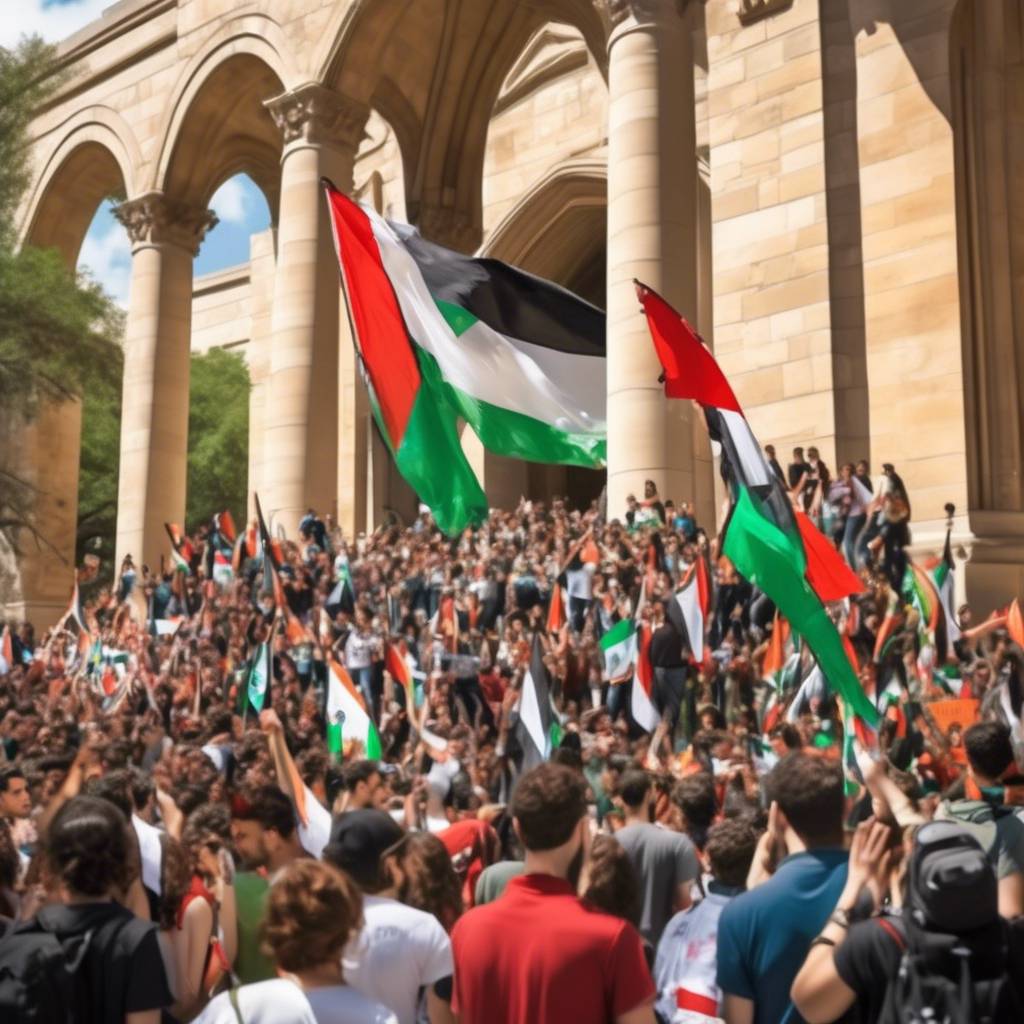The Palestine Solidarity Committee (PSC) at the University of Texas at Austin has been placed on interim suspension following the arrest of several students during on-campus protests. The organization accused the university of repeatedly changing protest policies and being vague about these changes since the protests began. The PSC criticized the university for suspending them, calling it an attack on free speech and alleging that it distracts from Israel’s campaign against the Palestinian people. The university cited violations of institutional rules based on student conduct and integrity as the reason for the suspension, which means the organization will not be able to host events on campus, reserve rooms, or work with faculty.
The suspension of the PSC came after over 30 people were arrested during an anti-Israel protest on UT Austin’s campus. The Austin Police Department and Texas Department of Public Safety were observed making arrests while some officers monitored the protests on horseback. The protesters chanted anti-police and anti-Israel slogans, leading to arrests being made to prevent unlawful assembly and support UT Police in maintaining peace. UT Austin President Jay Hartzell defended the decision to shut down the protest, emphasizing that university rules will be enforced despite the emotions surrounding the events.
The PSC’s suspension and the arrests on campus have sparked controversy and debate on free speech, protest policies, and relations with Israel among the UT-Austin community. The organization’s accusation of the university’s vague and changing protest policies highlights tensions between pro-Palestinian activism and university regulations. The protests and arrests have drawn attention to the ongoing conflict between Israel and Palestine, with anti-Israel sentiments expressed through chants and actions during the demonstrations.
The involvement of law enforcement agencies in the arrests and the decision to shut down the protest have underscored the challenges faced by universities in handling contentious events on campus. President Hartzell’s statement emphasized the importance of enforcing rules to maintain order, despite the emotional reactions that such events can evoke. The suspension of the PSC and the arrests during the protest have raised questions about the balance between free speech, protest rights, and institutional regulations in a university setting.
The ongoing debate and controversy surrounding the events at UT Austin reflect broader discussions about the Israeli-Palestinian conflict, free speech, and protest rights on college campuses. The intersection of political activism, law enforcement intervention, and institutional policies has ignited tensions and highlighted the complexities of navigating contentious issues in a university environment. The actions taken by the university, the PSC, and law enforcement have sparked conversations about how to address and resolve conflicts related to issues of social justice, human rights, and international relations.






